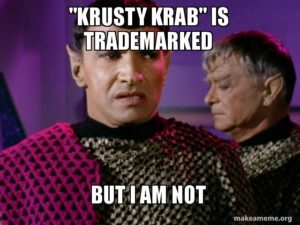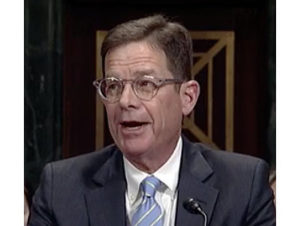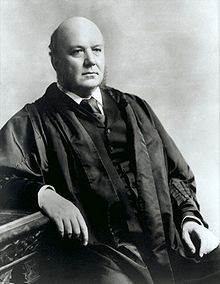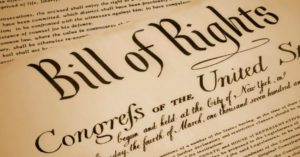A vigorously-litigated line  of Texas authority, often in the context of employment relationships defined by multiple documents, addresses whether an arbitration agreement is an illusory promise and thus unenforceable. In Arnold v. Homeaway, Inc. the Fifth Circuit addressed whether such a challenge went to “validity” (and could thus be resolved by an arbitrator under a “gateway” arbitration provision), or to “formation,” and could not. Drawing an analogy to Mississippi’s “minutes role” about the required documentation for contracts with public entities, the Court concluded that the challenge went to validity. Nos. 17-50088 and 17-50102 (May 15, 2018).
of Texas authority, often in the context of employment relationships defined by multiple documents, addresses whether an arbitration agreement is an illusory promise and thus unenforceable. In Arnold v. Homeaway, Inc. the Fifth Circuit addressed whether such a challenge went to “validity” (and could thus be resolved by an arbitrator under a “gateway” arbitration provision), or to “formation,” and could not. Drawing an analogy to Mississippi’s “minutes role” about the required documentation for contracts with public entities, the Court concluded that the challenge went to validity. Nos. 17-50088 and 17-50102 (May 15, 2018).
Monthly Archives: May 2018
 Flooded landowners in Houston alleged, inter alia, a violation of substantive due process from the effects of a “Reinvestment Zone” on drainage. Among other problems, that claim foundered on its merits under “rational basis” review: “Here, the government objectives were to improve its tax base and the general welfare. As stated by the plaintiffs in the complaint, the government projects enhanced roads and drainage, though in commercial areas in which the plaintiffs did not desire these improvements. The plaintiffs have also acknowledged in the complaint that ‘[t]he tax base has increased far above projections.’ It is ‘at least debatable’ that a rational relationship exists between the government projects and objectives.” Residents Against Flooding v. Reinvestment Zone No. 17, No. 17-20373 (May 22, 2018, unpublished).
Flooded landowners in Houston alleged, inter alia, a violation of substantive due process from the effects of a “Reinvestment Zone” on drainage. Among other problems, that claim foundered on its merits under “rational basis” review: “Here, the government objectives were to improve its tax base and the general welfare. As stated by the plaintiffs in the complaint, the government projects enhanced roads and drainage, though in commercial areas in which the plaintiffs did not desire these improvements. The plaintiffs have also acknowledged in the complaint that ‘[t]he tax base has increased far above projections.’ It is ‘at least debatable’ that a rational relationship exists between the government projects and objectives.” Residents Against Flooding v. Reinvestment Zone No. 17, No. 17-20373 (May 22, 2018, unpublished).
 “Federal law does not prevent a bona fide shareholder from exercising its right to vote against a bankruptcy petition just because it is also an unsecured creditor. Under these circumstances, the issue of corporate authority to file a bankruptcy petition is left to state law.” Accordingly, when (a) the debtor is a Delaware corporation, (b) governed by that state’s General Corporation Law, and (c) nothing in that law would nullify the sole preferred shareholder’s right to vote against the bankruptcy petition, that shareholder has the right to vote against – and thus prevent – the corporation’s filing of a voluntary bankruptcy petition. Franchise Services. v. U.S. Trustee, No. 18-60093 (May 22, 2018).
“Federal law does not prevent a bona fide shareholder from exercising its right to vote against a bankruptcy petition just because it is also an unsecured creditor. Under these circumstances, the issue of corporate authority to file a bankruptcy petition is left to state law.” Accordingly, when (a) the debtor is a Delaware corporation, (b) governed by that state’s General Corporation Law, and (c) nothing in that law would nullify the sole preferred shareholder’s right to vote against the bankruptcy petition, that shareholder has the right to vote against – and thus prevent – the corporation’s filing of a voluntary bankruptcy petition. Franchise Services. v. U.S. Trustee, No. 18-60093 (May 22, 2018).
 Before a lender may accelerate a debt (and later foreclose), Texas law requires that the lender send (1) notice of intent to accelerate, followed by (2) notice of acceleration. While “Texas courts have not squarely confronted whether a borrower is entitled to a new round of notice when a borrower re-accelerates following an earlier rescission,” the Fifth Circuit concluded “that the Texas Supreme Court would require such notice . . . Abandonment of acceleration ‘restor[es] the contract to its original condition.’ The Texas Supreme Court would likely conclude that Wilmington Trust acted ‘inconsistently’ by rescinding acceleration and then re-accelerating without notice.” Wilmington Trust v. Rob, No. 17-50115 (May 21, 2018).
Before a lender may accelerate a debt (and later foreclose), Texas law requires that the lender send (1) notice of intent to accelerate, followed by (2) notice of acceleration. While “Texas courts have not squarely confronted whether a borrower is entitled to a new round of notice when a borrower re-accelerates following an earlier rescission,” the Fifth Circuit concluded “that the Texas Supreme Court would require such notice . . . Abandonment of acceleration ‘restor[es] the contract to its original condition.’ The Texas Supreme Court would likely conclude that Wilmington Trust acted ‘inconsistently’ by rescinding acceleration and then re-accelerating without notice.” Wilmington Trust v. Rob, No. 17-50115 (May 21, 2018).

 A Texas restaurateur took steps to open a seafood restaurant called The Krusty Krab. Those plans met choppy seas when Viacom, owner of the “SpongeBob SquarePants” TV show, sued to enforce its trademark rights as to that name (in the show, the undersea restaurant where SpongeBob works). In a textbook example of a Lanham Act claim (Texas common law being identical), the Fifth Circuit held:
A Texas restaurateur took steps to open a seafood restaurant called The Krusty Krab. Those plans met choppy seas when Viacom, owner of the “SpongeBob SquarePants” TV show, sued to enforce its trademark rights as to that name (in the show, the undersea restaurant where SpongeBob works). In a textbook example of a Lanham Act claim (Texas common law being identical), the Fifth Circuit held:
- As a threshold matter, specific elements of a TV show can receive trademark protection (citing Conan the Barbarian, the General Lee, and Kryponite, while noting the less-fortunate case law about the Star Trek franchise’s rights to the term “Romulan”)

- As to the first element, the mark is legally protectable, especially given the high profile and longevity of the SpongeBob show
- And as to the second element, despite some uncertainty as to its degree and nature, the likelihood of confusion was still high enough to justify trademark protection.
Viacom Int’l v. IJR Capital Investments, No. 17-20334 (May 22, 2018).
 Plaintiff argued, for purposes of a UCC Article 2 damages calculation, that a pollution monitoring system was worthless because it was not practically repairable. The Fifth Circuit disagreed – language in an earlier Mississippi case about whether a good “could not be repaired and was worthless” was not “the same as ‘the goods were worthless because they could not be repaired.’ While it is true that an unrepairable good may also be worthless, it does not follow that such a good is always worthless.” The Court also found, as to a limitation-of-remedy provision: “Here, Altech provided an exclusive repair or replace warranty. The warranty failed of its essential purpose when Altech—over the course of years—was continually unable to repair the [system].” Steel Dynamics v. Alltech Environment, No. 17-60298 (May 17, 2018, unpublished).
Plaintiff argued, for purposes of a UCC Article 2 damages calculation, that a pollution monitoring system was worthless because it was not practically repairable. The Fifth Circuit disagreed – language in an earlier Mississippi case about whether a good “could not be repaired and was worthless” was not “the same as ‘the goods were worthless because they could not be repaired.’ While it is true that an unrepairable good may also be worthless, it does not follow that such a good is always worthless.” The Court also found, as to a limitation-of-remedy provision: “Here, Altech provided an exclusive repair or replace warranty. The warranty failed of its essential purpose when Altech—over the course of years—was continually unable to repair the [system].” Steel Dynamics v. Alltech Environment, No. 17-60298 (May 17, 2018, unpublished).
 Carley and Brown, the plaintiffs in a case about overtime pay, drove a Ford F-350 in their work as “cementers” for oil wells. The threshold question was whether the truck was a “motor vehicle[] weighing10,000 pounds or less”; if it was, a federal statute would remove them from overtime requirements. While seemingly clear, the statute left open the important practical matters, requiring the Fifth Circuit to analyze it and conclude:
Carley and Brown, the plaintiffs in a case about overtime pay, drove a Ford F-350 in their work as “cementers” for oil wells. The threshold question was whether the truck was a “motor vehicle[] weighing10,000 pounds or less”; if it was, a federal statute would remove them from overtime requirements. While seemingly clear, the statute left open the important practical matters, requiring the Fifth Circuit to analyze it and conclude:
- What. Applying Skidmore deference to a Labor Department bulleting about the statute, “weight” specifically refers to the manufacturer’s specified “gross vehicle weight rating”;
- Who. So defined, the burden of proof about “weight” fell on Carley, as this statute “is . . . not an exemption . . . [but] rather, it codifies conditions under which” pay is required notwithstanding an exemption; and
- How. Echoing similar disputes about the relevance of property tax filings in valuation disputes, a document about vehicle registration, that stated the truck’s “empty weight” (7600 pounds) and “gross weight” (9600 pounds) did not overcome undisputed evidence that the GVWR was in fact 11,500 pounds.
Carley v. Crest Pumping Technologies, No. 17-50226 (May 16, 2018).
 Erie Railroad Co. v. Tompkins was decided in 1938. Sierra Equipment v. Lexington Ins. Co., an Erie case from the Fifth Circuit this week, turned on Texas authority that pre-dated Erie – specifically, a court of appeals opinion approved by the 1920s-era Texas Commission on Appeals (a representative picture of which is to the right). The specific question was whether the “equitable lien” doctrine allowed a lessee to sue on a lessor’s insurance policy absent a “loss payable” clause in the policy; consistent with the ruling of the Commission and most other cases on the point, the Court concluded that the lessee could not bring that suit. No. 17-10076 (May 15, 2018).
Erie Railroad Co. v. Tompkins was decided in 1938. Sierra Equipment v. Lexington Ins. Co., an Erie case from the Fifth Circuit this week, turned on Texas authority that pre-dated Erie – specifically, a court of appeals opinion approved by the 1920s-era Texas Commission on Appeals (a representative picture of which is to the right). The specific question was whether the “equitable lien” doctrine allowed a lessee to sue on a lessor’s insurance policy absent a “loss payable” clause in the policy; consistent with the ruling of the Commission and most other cases on the point, the Court concluded that the lessee could not bring that suit. No. 17-10076 (May 15, 2018).
 The triangular relationship between (1) an insurer, (2) an insured, and (3) the counsel chosen by the insurer to defend the insured in litigation can become an uneasy one. Grain Dealers Mut. Ins. Co. v. Cooley illustrates when it can become unstable. The insurer (Grain Dealers) provided the insureds (the Cooleys) a defense, “yet simultaneously disclaimed coverage if the Cooleys were ordered to clean the spill. In doing so, Grain Dealers failed to inform the Cooleys of their right to hire independent counsel. When the [relevant administrative agency] ultimately found the Cooleys liable for the spill, Grain Dealers then refused to defend or indemnify the Cooleys against a resulting claim.” That failure created the prejudice needed to estop Grain Dealers from denying coverage for liability: ” [T]he Cooleys presented evidence that Grain Dealers’ attorney never informed them of their right to challenge the [agency] decision. That right has since lapsed. The loss of the right to challenge the underlying administrative order with the benefit of non-conflicted counsel is clearly prejudicial.” No. 17-60307 (May 14, 2017, unpublished).
The triangular relationship between (1) an insurer, (2) an insured, and (3) the counsel chosen by the insurer to defend the insured in litigation can become an uneasy one. Grain Dealers Mut. Ins. Co. v. Cooley illustrates when it can become unstable. The insurer (Grain Dealers) provided the insureds (the Cooleys) a defense, “yet simultaneously disclaimed coverage if the Cooleys were ordered to clean the spill. In doing so, Grain Dealers failed to inform the Cooleys of their right to hire independent counsel. When the [relevant administrative agency] ultimately found the Cooleys liable for the spill, Grain Dealers then refused to defend or indemnify the Cooleys against a resulting claim.” That failure created the prejudice needed to estop Grain Dealers from denying coverage for liability: ” [T]he Cooleys presented evidence that Grain Dealers’ attorney never informed them of their right to challenge the [agency] decision. That right has since lapsed. The loss of the right to challenge the underlying administrative order with the benefit of non-conflicted counsel is clearly prejudicial.” No. 17-60307 (May 14, 2017, unpublished).
 Congratulations and every best wish to new Fifth Circuit judge Kurt Engelhardt of New Orleans, formerly the Chief Judge of the Eastern District of Louisiana, who was confirmed yesterday by the Senate. Fifteen of the Court’s seventeen positions for full-time judges are now filled, with the nomination of Texas’s Andrew Oldham pending, and the seat formerly held by Judge Jolly still vacant.
Congratulations and every best wish to new Fifth Circuit judge Kurt Engelhardt of New Orleans, formerly the Chief Judge of the Eastern District of Louisiana, who was confirmed yesterday by the Senate. Fifteen of the Court’s seventeen positions for full-time judges are now filled, with the nomination of Texas’s Andrew Oldham pending, and the seat formerly held by Judge Jolly still vacant.
 Among other (unsuccessful) challenges to the exclusion of summary judgment evidence, the appellant in Warren v. Fannie Mae invoked Mutual Life Ins. Co. of New York v. Hillmon, 145 U.S. 285 (1892), the case that led to the hearsay exception in Fed. R. Evid. 803(3) for “then-existing mental, emotional, or physical condition.” (The opinion was
Among other (unsuccessful) challenges to the exclusion of summary judgment evidence, the appellant in Warren v. Fannie Mae invoked Mutual Life Ins. Co. of New York v. Hillmon, 145 U.S. 285 (1892), the case that led to the hearsay exception in Fed. R. Evid. 803(3) for “then-existing mental, emotional, or physical condition.” (The opinion was  written by Justice Horace Gray, right). The citation did not succeed, however, as the Fifth Circuit observed: “Hillmon looked at a declarant’s words as evidence they later followed through with a plan. Warren is arguing that her post-conduct statements of intention imply that she actually told Peters about Finch. Therefore, Hillmon is inapposite.” No. 17-10567 (May 3, 2018, unpublished).
written by Justice Horace Gray, right). The citation did not succeed, however, as the Fifth Circuit observed: “Hillmon looked at a declarant’s words as evidence they later followed through with a plan. Warren is arguing that her post-conduct statements of intention imply that she actually told Peters about Finch. Therefore, Hillmon is inapposite.” No. 17-10567 (May 3, 2018, unpublished).
 The Fifth Circuit affirmed the denial of a motion to dismiss under the TCPA (the Texas “anti-SLAPP” statute), noting that the appellant’s arguments to the district court limited him to “only . . . the theory that the TCPA applies because the claims are based on, related to, or in response to a communication in or pertaining to a judicial proceeding” within the meaning of that statute. The appellant submitted a Rule 28(j) letter citing a recent Texas Supreme Court opinion that, inter alia, recommended a “holistic review of the pleadings” in the TCPA context. The Fifth Circuit did not agree, characterizing this “point, at its core, [a]s the Texas Supreme Court’s application of that court’s argument waiver principles,” and observing: “Because this court consistently applies its waiver precedent in diversity jurisdiction cases, we will do so here.” Diamond Consortium, Inc. v. Hammervold, No.17-40582 (May 3, 2018).
The Fifth Circuit affirmed the denial of a motion to dismiss under the TCPA (the Texas “anti-SLAPP” statute), noting that the appellant’s arguments to the district court limited him to “only . . . the theory that the TCPA applies because the claims are based on, related to, or in response to a communication in or pertaining to a judicial proceeding” within the meaning of that statute. The appellant submitted a Rule 28(j) letter citing a recent Texas Supreme Court opinion that, inter alia, recommended a “holistic review of the pleadings” in the TCPA context. The Fifth Circuit did not agree, characterizing this “point, at its core, [a]s the Texas Supreme Court’s application of that court’s argument waiver principles,” and observing: “Because this court consistently applies its waiver precedent in diversity jurisdiction cases, we will do so here.” Diamond Consortium, Inc. v. Hammervold, No.17-40582 (May 3, 2018).
 In Gulf Coast Workforce LLC v. Zurich American Ins. Co., the appellant’s “second point of error alleges that the district court awarded damages that no witness could explain or confirm. Zurich’s sole witness was Smith, who conducted the audit but did not work on billing matters. [Appellant] contends that, because Smith could not testify to the $53,161 premium, Zurich did not prove its damages.” The Fifth Circuit saw otherwise, identifying two trial exhibits that supported that figure and holding: “Therefore, the district court’s damages determination was not clearly erroneous.” No. 17-30379 (May 4, 2018, unpublished).
In Gulf Coast Workforce LLC v. Zurich American Ins. Co., the appellant’s “second point of error alleges that the district court awarded damages that no witness could explain or confirm. Zurich’s sole witness was Smith, who conducted the audit but did not work on billing matters. [Appellant] contends that, because Smith could not testify to the $53,161 premium, Zurich did not prove its damages.” The Fifth Circuit saw otherwise, identifying two trial exhibits that supported that figure and holding: “Therefore, the district court’s damages determination was not clearly erroneous.” No. 17-30379 (May 4, 2018, unpublished).
 Another practice point from In re DePuy Orthopaedics involved this portion of the plaintiffs’ closing argument, allowed over objection and without any accompanying instruction: “If you don’t consider the damages by the day, by the hour, by the minute, then you haven’t considered their damages. . . . “[P]lease, please, please, if they [the defendants] will pay their experts a thousand dollars an hour to come in here, when you do your math back there don’t tell these plaintiffs that a day in their life is worth less than an hour’s time of this fellow, or people they put on the stand.”
Another practice point from In re DePuy Orthopaedics involved this portion of the plaintiffs’ closing argument, allowed over objection and without any accompanying instruction: “If you don’t consider the damages by the day, by the hour, by the minute, then you haven’t considered their damages. . . . “[P]lease, please, please, if they [the defendants] will pay their experts a thousand dollars an hour to come in here, when you do your math back there don’t tell these plaintiffs that a day in their life is worth less than an hour’s time of this fellow, or people they put on the stand.”
The Fifth Circuit observed: “[U]unit-of-time arguments like this one are impermissible because they can lead the jury to ‘believ[e] that the determination of a proper award for . . . pain and suffering is a matter of precise and accurate determination and not, as it really is, a matter to be left to the jury’s determination, uninfluenced by arguments and charts.’ Lanier’s reference to expert fees was meant simultaneously to activate the jury’s passions and to anchor their minds to a salient, inflated, and irrelevant dollar figure. The inflammatory benchmark, bearing no rational relation to plaintiffs’ injuries, easily amplified the risk of ‘an excessive verdict.’ The argument was ‘design[ed] to mislead,’ and tainted the verdict that followed.” Nos. 16-11051 et seq. (April 25, 2018) (citations omitted).
 The panel majority in Benson v. Tyson Foods affirmed the denial of a request to speak to jurors after a trial, but observed: “In light of the First Amendment interests at stake here, which [Haeberle v. Texas Int’l Airlines, 739 F.2d 1019 (5th Cir. 1984)] did not appear to fully appreciate, district courts in the future would be wise to consider seriously whether there exists any genuine government interest in preventing attorneys from conversing with consenting jurors—and if so, whether that interest should be specifically articulated, in order to facilitate appellate review and fidelity to the Constitution.” A concurring opinion agreed with the affirmance but would not have relied on the Haeberle opinion, instead preferring an approach that took into account the interests of the movant as a factor – a “step . . . fatal to Benson’s argument,” as “her rights would be unaffected by a decision that the district court abused its discretion in not giving her counsel sufficient justification for denying their request.” No. 17-40161 (May 1, 2018).
The panel majority in Benson v. Tyson Foods affirmed the denial of a request to speak to jurors after a trial, but observed: “In light of the First Amendment interests at stake here, which [Haeberle v. Texas Int’l Airlines, 739 F.2d 1019 (5th Cir. 1984)] did not appear to fully appreciate, district courts in the future would be wise to consider seriously whether there exists any genuine government interest in preventing attorneys from conversing with consenting jurors—and if so, whether that interest should be specifically articulated, in order to facilitate appellate review and fidelity to the Constitution.” A concurring opinion agreed with the affirmance but would not have relied on the Haeberle opinion, instead preferring an approach that took into account the interests of the movant as a factor – a “step . . . fatal to Benson’s argument,” as “her rights would be unaffected by a decision that the district court abused its discretion in not giving her counsel sufficient justification for denying their request.” No. 17-40161 (May 1, 2018).